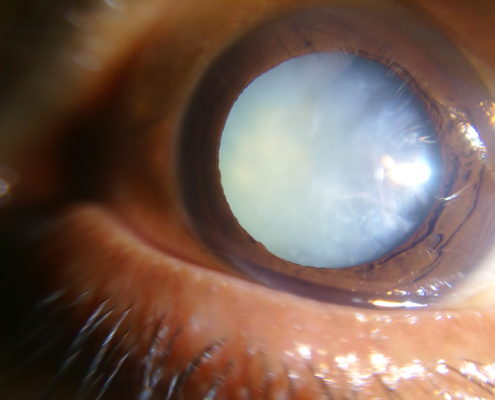Cataract Treatment
What are Cataracts?
A cataract is simply a clouding of the lens inside the eye. Most cataracts are age related and everyone gets them at some point, usually significant enough to affect vision in your late 60’s and 70’s. Some types of cataracts are associated with disease or medications and can occur earlier in life, and some occur with trauma. We refer you for surgery when vision quality reduces to the point where eyeglass correction no longer gives clear vision, or if glare becomes very noticeable.

How are Cataracts treated?
Cataracts are treated by removing the cloudy lens and replacing it with a plastic one. Cataract surgery is the most commonly performed surgery in North America. Your preliminary visit will involve a consultation with the surgeon to assess the severity of the cataract. If you decide to proceed, there are a number of measurements that are then performed and your surgical date booked. Surgery is done on an outpatient basis at a cataract surgical facility used by your ophthalmologist for this purpose. It is usually a painless and relatively quick surgical procedure involving eye drops to numb the eye, followed by extraction of the cloudy lens through a small incision in the front window (cornea) of the eye. Extraction is performed using a small handheld ultrasonic tool that liquefies your cataract and extracts it through a vacuum. This process may also involve use of a laser to help break up the cataract into smaller pieces. Once the old lens is extracted, implantation of a new plastic lens is done using a small syringe containing a foldable lens. The procedure is usually complete in 15 minutes and you are patched up and sent home. You can usually see very well the next day, and are fully healed after a few weeks of eye drops. We will generally see you at the 2 week point to ensure things are healing well, and again a month later to assess your vision and the possible need for glasses.
Is Cataract surgery covered by Health Care?
There are a variety of lens options available for implantation. Alberta Health will cover the cost of surgery and a basic implant to correct any nearsightedness or farsightedness, but these lenses do not correct astigmatism. If you have astigmatism, you can get the basic lens, but you may still need glasses after surgery to correct the astigmatism for sharp distance vision, and you will likely still need reading glasses.
You can opt to pay extra to get the lens implant designed to correct the astigmatism, giving you a high chance to achieve optimal distance vision without glasses. You will still likely need glasses for reading.
There are also multifocal lens implants designed to correct both near and far vision. Results are variable on these lenses, and some patients notice a loss of clarity at distance and/or increased glare from the optics of these implants. Glare from these lenses is impossible to fix without another surgery to extract and re-implant new lenses. Some patients are satisfied with the results of these private pay lens implants, but there is no guarantee.
Do Cataracts grow back?
A cataract cannot grow back after removal. However there are remnant lens cells left behind after cataract extraction that try to regrow. This causes a clouding of the membrane behind the plastic lens implant, impairing the vision in a way similar to a cataract. For this reason, it is often named a “secondary cataract”. Treatment of this cloudy membrane is very straightforward and does not involve outpatient surgery. It is a 5-minute procedure performed in-office using a microscope mounted YAG laser. This laser is precisely focused to create a hole in the membrane. This low risk procedure restores clear vision. There are sometimes remnant floaters for a few days, but these usually settle out of the vision in a few weeks. Rarely does your eyeglass prescription change, but you must be monitored at our office for possible inflammation or pressure increase in the weeks following the procedure.
Looking for Cataract Diagnosis & Care in Calgary? Mission Eye Care optometrists are highly trained in the diagnosis and care of cataract patients and we pride ourselves on having the latest technology and diagnostic imaging equipment. Contact us today to set up an appointment.


